Part 19: Holy War
Chapter 19 – Holy War – 1288 to 1299The Black Death swept across the Known World like a storm, wreaking havoc for over a decade before finally retreating, and only chaos was left in its wake. In the Middle East, the Fatimid Empire had been hit the hardest, with internal unrest quickly escalating into open rebellion. After two years of war, Egypt managed to win independence from the Shia Caliph, who also lost control over large parts of the Levant and Mesopotamia.
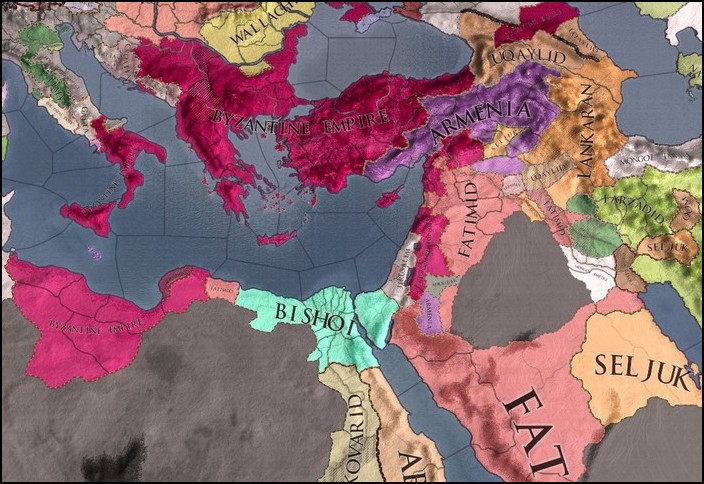
Further west, in Central Europe, the Holy Roman Empire wasn’t able to avoid the wave of unrest either. Slowly but surely, the authority of the Emperor was beginning to wane as princes gained autonomy, with large parts of the de jure Empire completely independent.
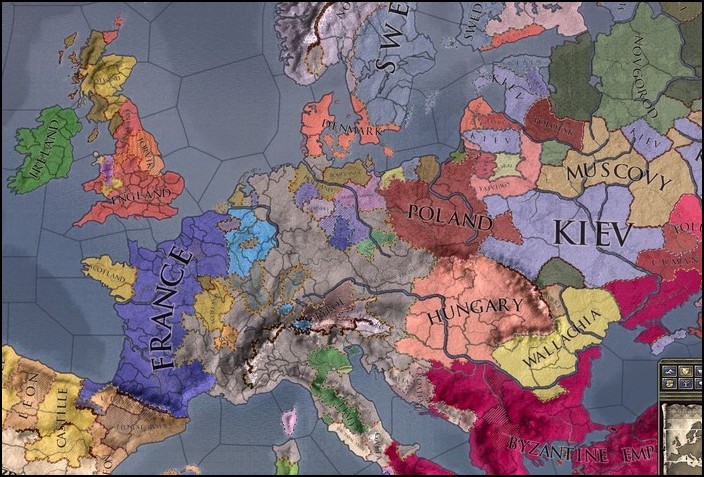
Back on the Iberian peninsula, which was still suffering in the wake of the devastating plague, things were not much better. Amongst the Christian principalities, a Catalan duke had declared independence from León, dealing the once-powerful kingdom a stinging blow.
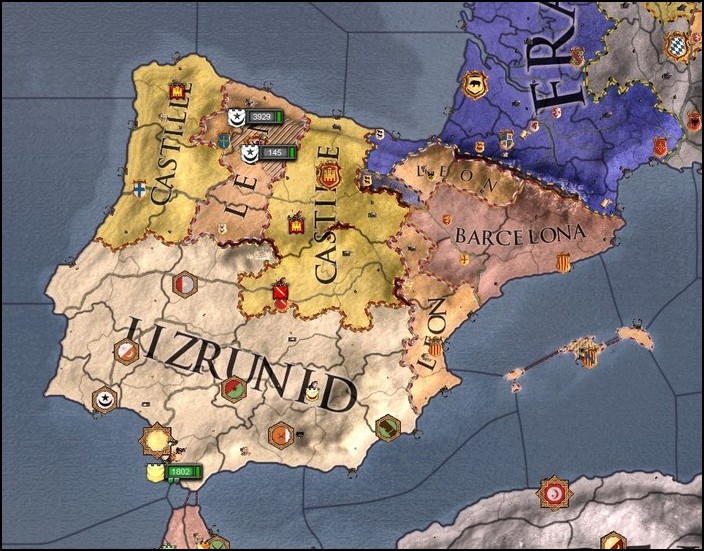
In the south, the past few years have been just as tumultuous, with the internal divisions of al-Andalus boiling to the surface yet again. Shortly following Sultan Fath’s assassination, his young son and successor was quickly taken into the custody of the Majlis, to be educated and raised however they saw fit.
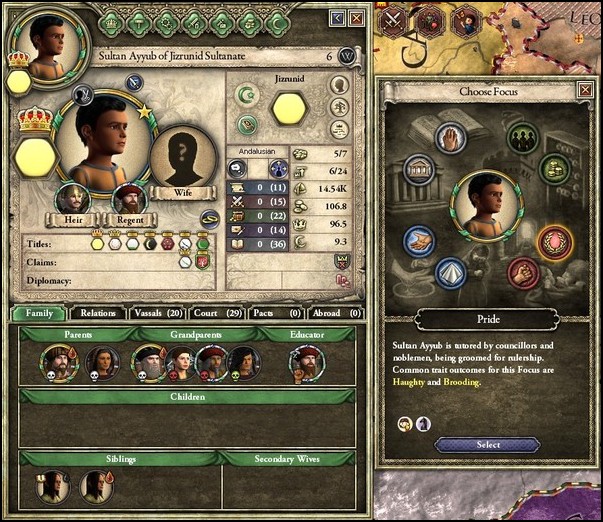
As the sun began setting on another century, meanwhile, news of holy war in the east crept its way to Qadis. The Sunni Caliph had called for Jihad against the East Roman Empire, apparently, and the call had been met by both the Uqaylid Shahdom and the Armenian Sultanate.
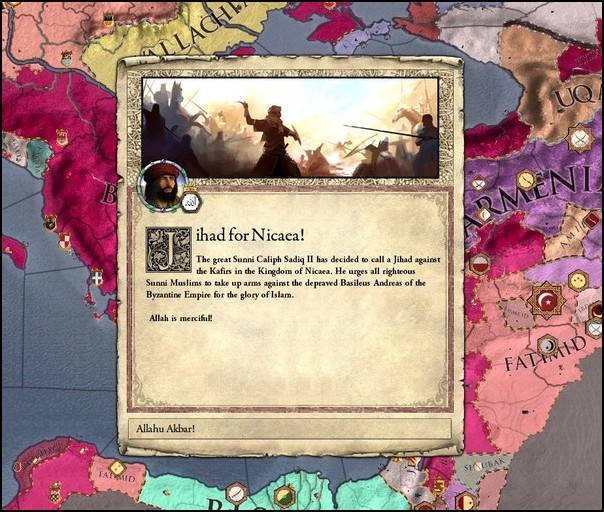
The Majlis, acting as representatives of the Western Ummah, met to discuss whether to send an expeditionary force or not. The prestige benefits would be great, and a successful jihad could lend legitimacy to their authority as well, though at the cost of money and men.
This was also an opportunity, however. The East Roman Empire had been expanding worryingly fast over the past few decades, quickly conquering vast swathes of land in Southern Italy and North Africa, and had even begun encroaching on Andalusi spheres of influence. Now, with the Sunni Caliph declaring jihad and a boy-emperor ruling in Constantinople, now was the perfect chance to strike back.
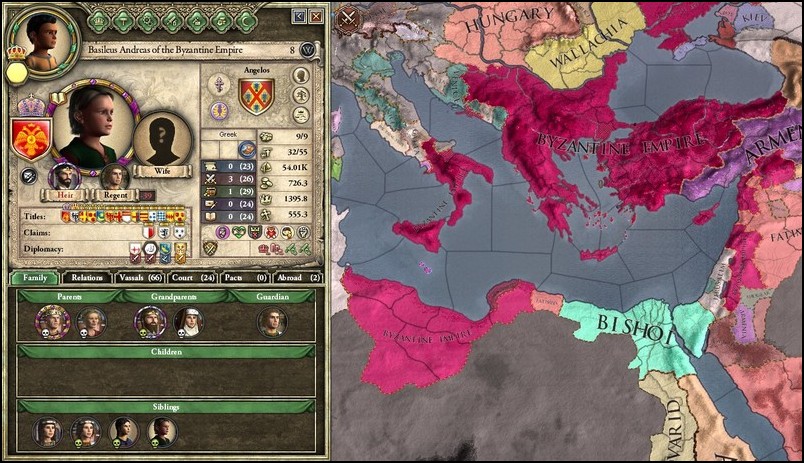
Eventually, after fiery debate raged between the Aftasid and Yahaffid emirs, the lords of the Majlis decided in favour of the Yahaffids and intervention. A large force of 10,000 men were gathered at Balansiyyah, under the command of Emir Ismail Yahaffid, and from there they began the journey eastward and towards Cilicia. Nobody really expected them to do much against the forces of Constantinople, but it was certainly better than nothing.
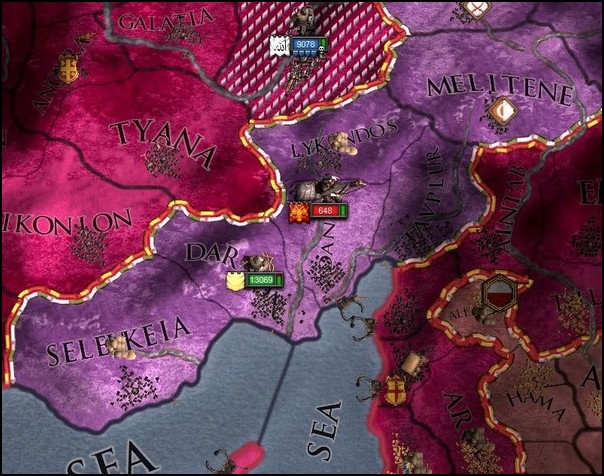
Surprisingly, however, the Andalusi expedition met with immediate success, quickly pinning down two Roman armies and crushing them in short battles. Apparently, a revolt had risen up in Greece just as the Jihad was declared, dividing the Empire's resources and allowing thousands of Muslim ghazi to flood into Anatolia unopposed.
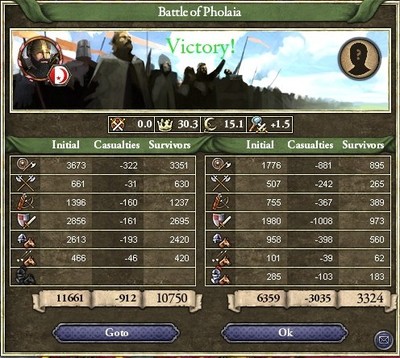
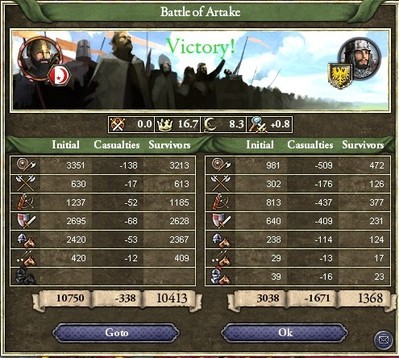
The opportunities were boundless, and once Yahaffid's forces joined up with the Caliph’s, the road to Constantinople itself would stand opwn.
But then, unfortunately, an emissary arrived from Qadis demanding his immediately return. War had broken out between Christian and Muslim powers in Iberia once again, with Queen Ahu of León hoping to pounce on the Andalusi whilst they were distracted.
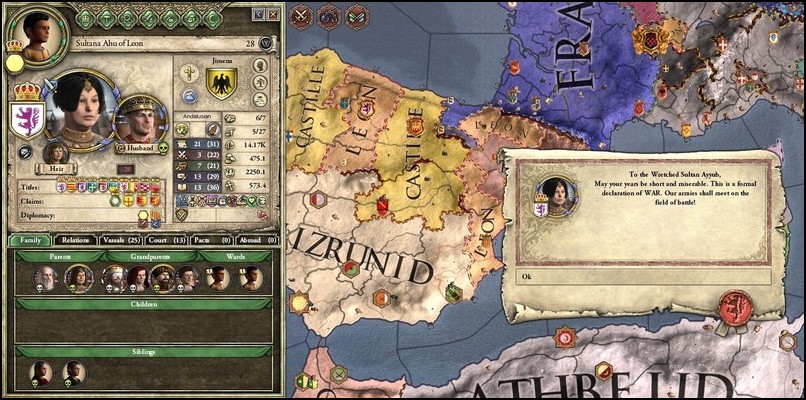
It took almost a year for the expeditionary force to make its way back to Iberia, time enough for the enemy to capture several important fortresses on the Andalusi-Leónese border. Immediately upon landing at Almeria, Emir Ismail Yahaffid led the expeditionary force northward on a forced march, reaching the hill-forts at Mursiya before the Christians could storm them.
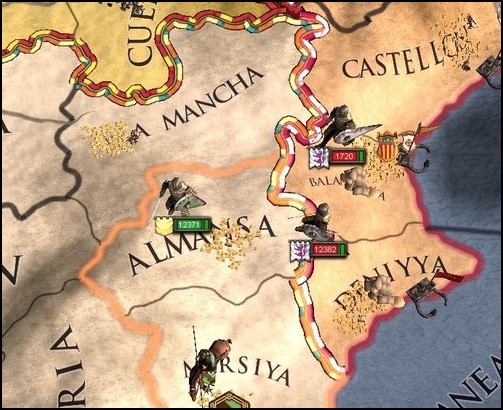
The Leónese decided to attack the Muslims head-on, but with roughly equal numbers and terrain on their side, the Andalusi were all too happy to meet their foes in battle.
Unfortunately, it didn’t go exactly as planned. The Leónese utilised devastating cavalry to their advantage, and after a bloody struggle lasting two long, sweltering days, they forced the Emir to fall back and reorganise his forces.
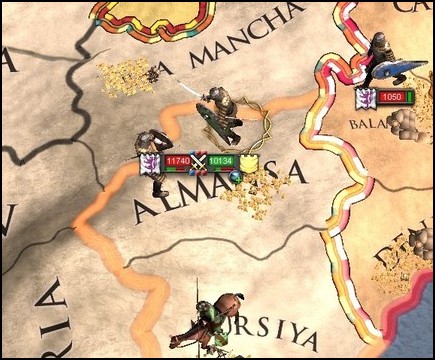
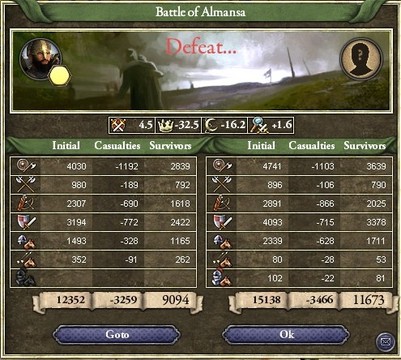
The defeat wasn’t a decisive one, but the Leónese already had a good chunk of western Andalusia under occupation, which brought them much closer to victory. With a larger army on their side as well, it was beginning to look like the Andalusi war effort was a hopeless one.
That is, until the Berbers came into the story.

The Almoravids and Jizrunids haven’t been on good terms for a while now, but the Berbers knew that a Christian power dominating Iberia wasn’t good for them, so they offered to contribute to its defence (that, along with the promise of hefty monetary payments, of course).
The relieved Majlis accepted without a second thought, and just a week later, a combined Berber-Andalusi force set off from Jabal Tariq to engage the Leónese once again.
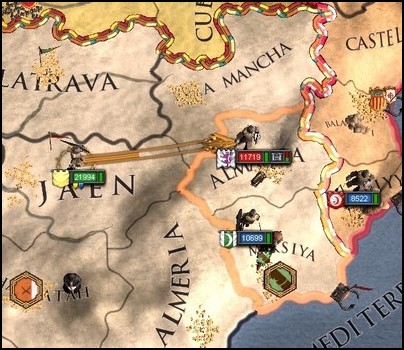
And this time, the campaign went much better. Emir Yahaffid and Sultan Almoravid coordinated their movements, quickly surrounding the numerically-inferior Leónese force at Almeria, where they crunched into the enemy army like hammers on a nail. Within an hours, the enemy lines were breached and their formation was fractured, with the shattered levies dropping their weapons and fleeing en masse.
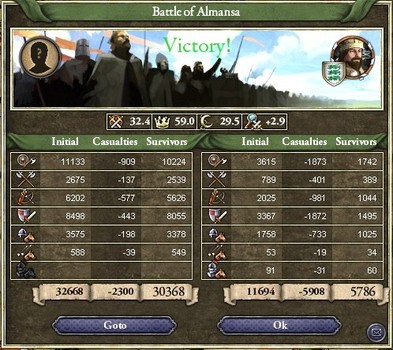
Eager to capitalise on the victory, Yahaffid instructed a scouting force to pursue the broken army, raiding their supply trains and slowing them down. The Leónese were forced to a halt and engaged in another battle, little more than a massacre, which ended with the complete surrender of the Christians.
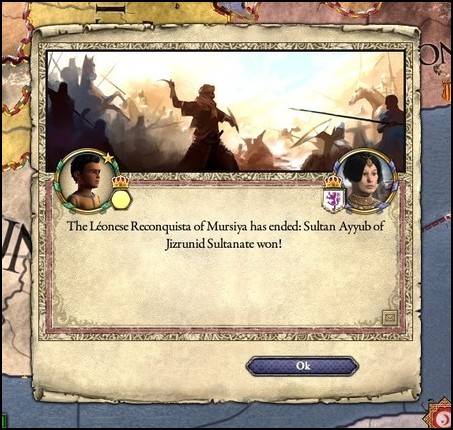
The terms for peace were harsh, and as caravans laden with tribute made their way towards Qadis (and from there across the straits and into Morocco), the rich landlords and nobility of the Majlis al-Shura began celebrating their 'great victory'. As the aristocracy drank themselves half-mad in Qadis, however, Islam was being dealt blow after blow in the Near East.
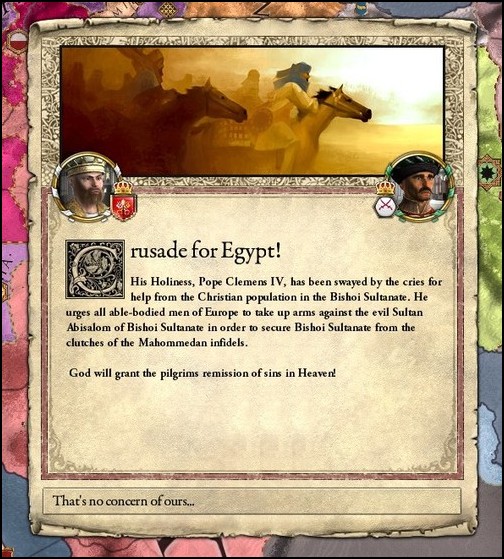
After suffering defeat in several wars against both the Fatimids and the East Roman Empire, the King of Jerusalem appealed to the Pope in an effort to gain support. Pope Clemens responded by calling for another Crusade, this time to establish a Christian Kingdom in Egypt, to hopefully supplant Jerusalem and aid it in its defence.
This would have been important news in Qadis, but the celebrations had already been cut short by another crisis, demanding the full attention of the Majlis.
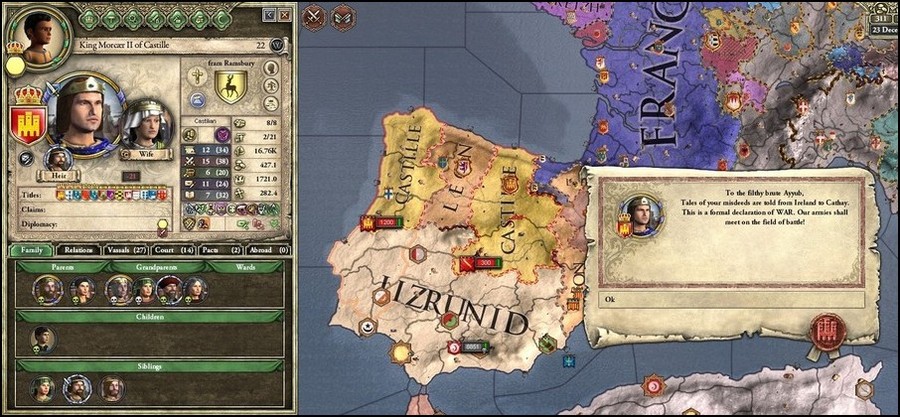
After planning out his strategies for long years, King Morcaer II of Castille had decided that the time was ripe to pounce on the weak Andalusi and rectify his father’s losses. A strong and widely-respected man, Morcaer would have undoubtedly been able to defeat al-Andalus in a one-on-one fight, but the Majlis could still count on the support of the Berber kingdoms to prop them up.
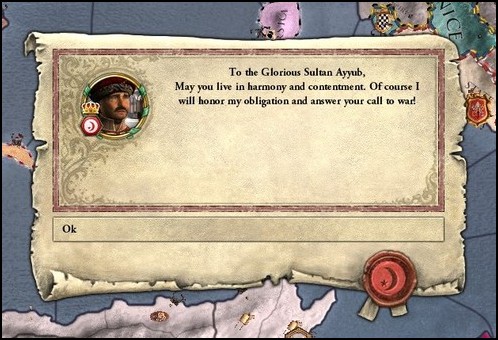
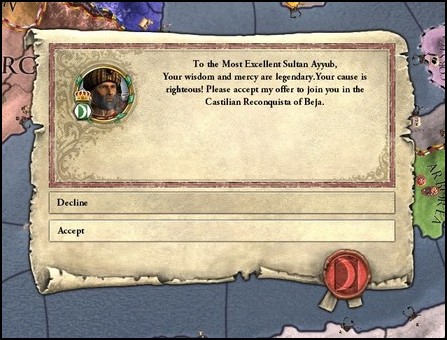
The Andalusi levies were still gathered just north of Qadis, so Emir Yahaffid was granted supreme command once more, with the general rushing northwards without delay. The march ended at Elyas, where an 11,000-strong Castilian army was besieging a border fortress, though they turned their spears and arrows on the Andalusi quick enough.
Buoyed by his victory against León, Emir Ismail stormed into battle with numerical superiority on his side, certain of the outcome.
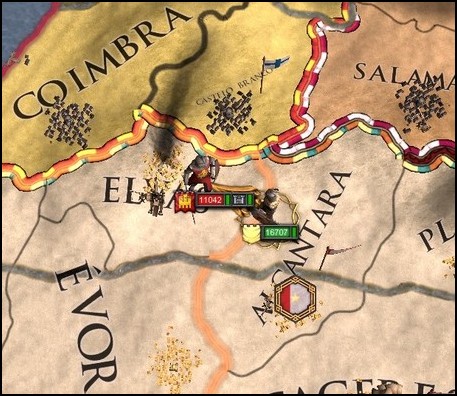
…Again, it didn’t quite go as planned. Enemy reinforcements rushed onto the field from the north, numbering 8000 in all, and shifted the battle sharply in favour of the Castilians.
Unable to deal with his change in fortunes, Emir Yahaffid ordered a mass retreat, fleeing the battle at the head of his shattered army. Thousands were slaughtered in the hours that followed, handing a decisive victory to the Christians.
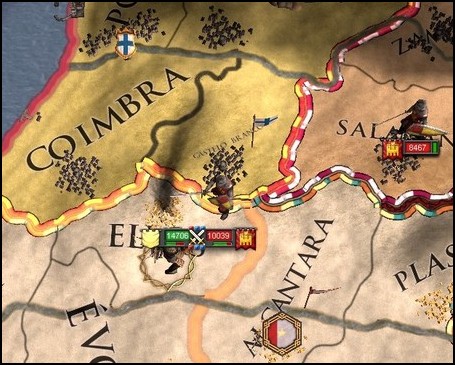
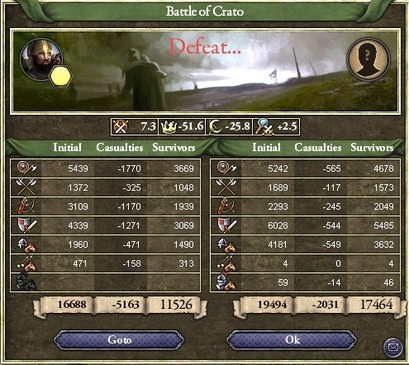
To make matters worse, a large Zikri revolt broke out in Granada just days later, with the fanatics hoping to capitalise on the weakness of the Majlis and seize independence.
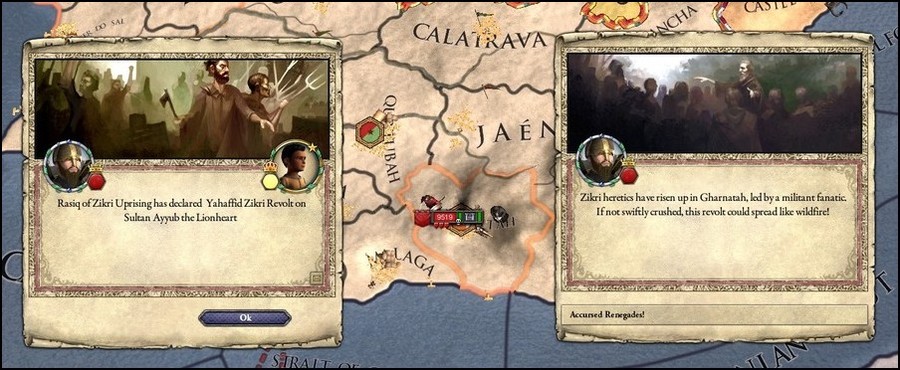
It is now, just as al-Andalus is beginning to keel over, that Sultan Ayyub strides into the picture.
Tutored by the very best scholars Qadis had to offer, young Ayyub spent the vast majority of his young life being manipulated by one old man or another, everyone trying to take advantage of his position. But he had lived through the Black Death, through the assassination of his father and through the devastating wars of recent years, so the political games of the Majlis wasn’t enough to shake his self-belief and ambition. He immediately demanded that his viziers swear the traditional oaths of loyalty to him, and hoping he would be able to inspire the army to victory, the lords of the Majlis did just that.
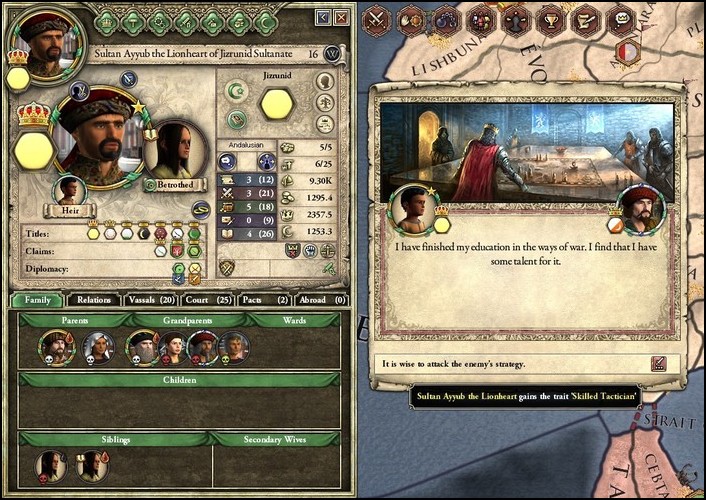
Ayyub was crowned in a cheap, rushed ceremony before he left the capital, taking command of his battered army a few weeks later. He hadn't been trained in the intricacies of strategy, but he knew that numbers were as important as tactics, so he spent the next few months allowing his army to rest and recuperate. Once they’d recovered, the young sultan led the Andalusi levies into his first engagement, thundering into a skirmish at the head of his cavalry retinue.
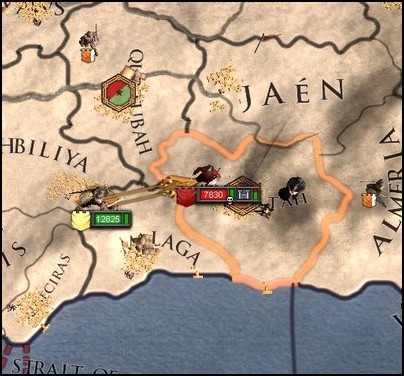
The battle ended in a crushing victory, and though smashing a bunch of fanatic peasants wasn’t much to be proud of, it was enough to raise the abysmal morale of Ayyub’s army.
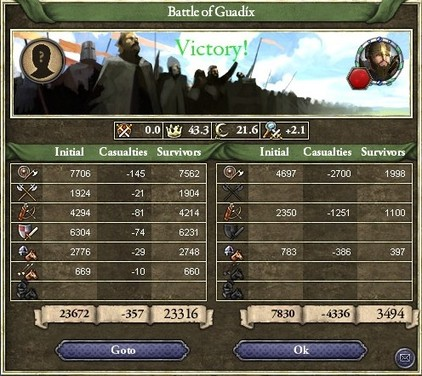
Whilst Ayyub was busy fighting the heretics, the Almoravid Sultan led his own force into battle against the Castilians, dealing them a crushing defeat after a bloody, drawn-out battle.
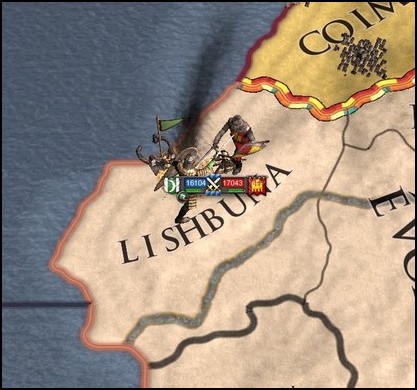
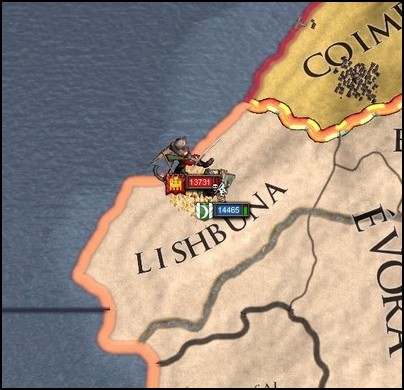
With the Christians on the run, Ayyub led his army northwest and joined up with the Berbers, before embarking on one final campaign. The Muslims engaged the enemy army just two months later, throwing their full weight at the 12,000 Castilians besieging Elyas.
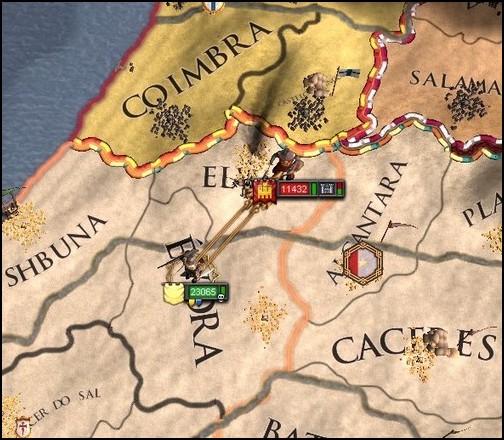
Facing such drastic odds, the Castilians didn't stand much of a chance, quickly collapsing once their flanks were destroyed. Ayyub took the opportunity to test out his own strategies on the battlefield, gaining as much knowledge as he could, knowing that it would serve him well in the future.
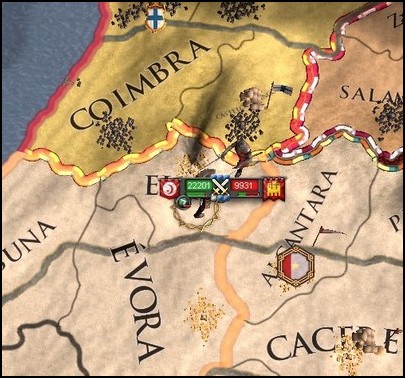
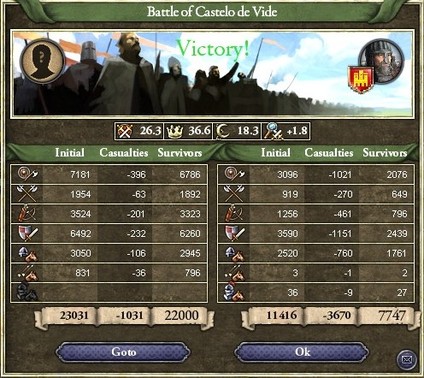
Having narrowly escaped the slaughter, King Morcaer sued for peace just days later, offering tribute and a concession of defeat. With his resources exhausted and a political mess waiting for him in Qadis, Sultan Ayyub accepted and disbanded his army, returning to the capital soon afterwards.
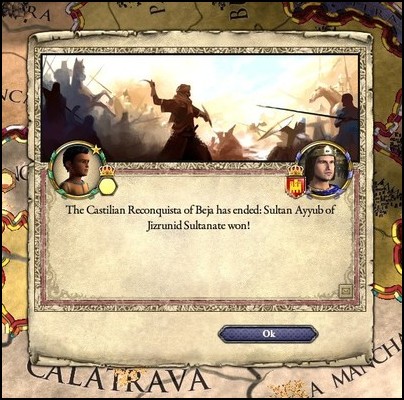
With that, almost eleven years of constant war comes to an end, and al-Andalus did not come out of it in good shape. Still, Sultan Ayyub is young and ambitious, if not particularly gifted, and his eyes are set on the stars themselves.
Whilst the drums of war slowly die down in Iberia, however, the beating is only just beginning in the Near East. Apparently, after the Andalusi expeditionary force departed Anatolia, a combined Muslim army inflicted several defeats on Roman armies and managed to storm Constantinople itself. Just hours later, the Basileus surrendered to the Caliph and the Jihad was declared a victory.
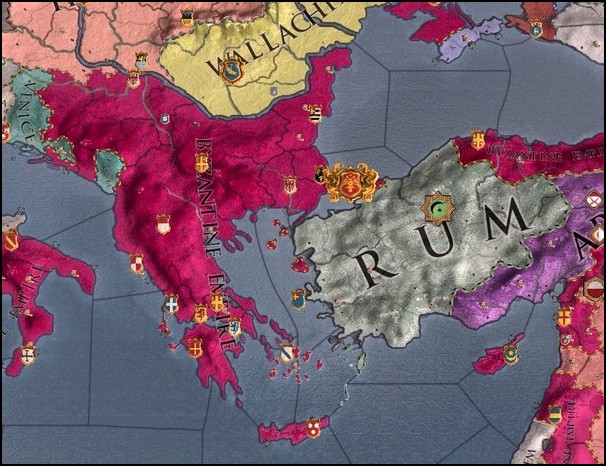
Allah gives with one hand and takes with another, however. Whilst the Sunni faithful dealt the infidel a fatal blow in the north, the Shia powers were on the retreat further south. After a bloody war stretching across three years, with battles raging from Alexandria to Antioch, the Crusade for Egypt came to an end with the Sack of Cairo and victory for the crusaders.
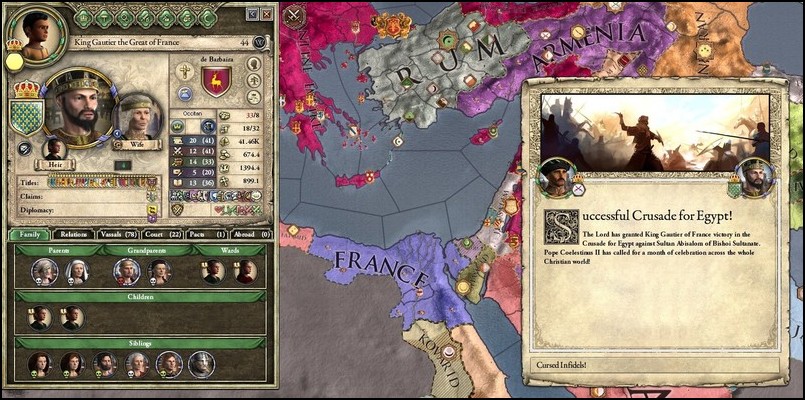
As the chief participant of the Crusade, Egypt came under the control of the King of France. Rather than grant it to one of his relatives, however, King Gautier instead declared the formation of the Occitan Empire, a rival to both the Holy Roman Empire and the East Roman Empire.
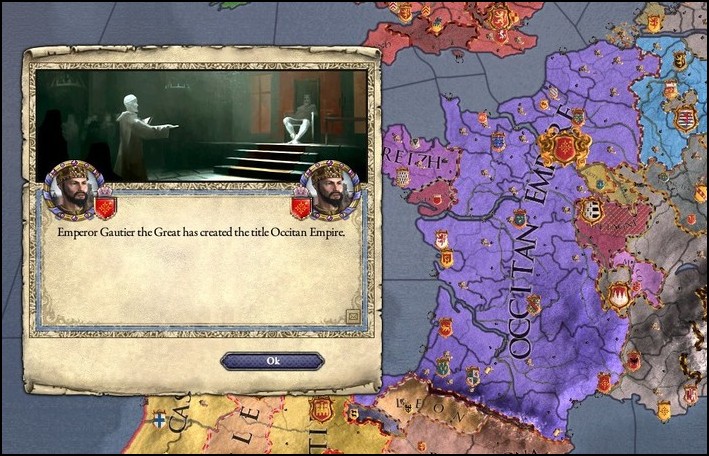
In this age of holy war, the stakes are high and loss comes hand-in-hand with destruction. Nevertheless, from Qadis to Baghdad, dice are being cast and greedy hands are scrambling for chips, so who will come out on top?